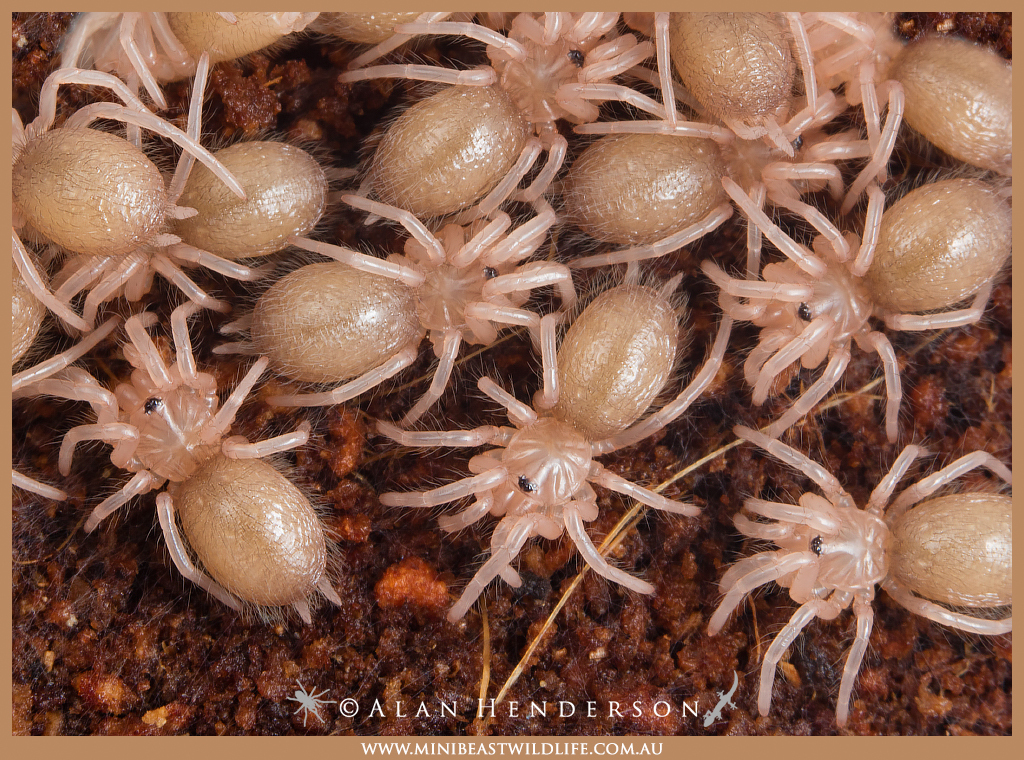Captive bred
We sell sustainably captive bred invertebrates and it means better outcomes for you.
Buying captive bred invertebrates is best practice. This is very important for groups such as spiders and scorpions, often the target of unscrupulous collectors. There are many advantages of buying from legitimate captive-breeders and avoiding those that engage in poaching and simply collect much of their stock from the wild. Here's why:
- It protects vulnerable species from over collection
- The invertebrates are of a known age. (Many invertebrates have relatively short lives anyway, so why risk getting something that may have only months or even weeks of life left).
- They are free from parasites and diseases.
- We have many years of experience breeding invertebrates - that means we know how to keep them, and can help you with information. Collectors often don't know much about how to keep these animals alive and healthy long term.
How can I tell if an invertebrate is really captive bred?
Unfortunately there are many options online that mention captive bred invertebrates, but don't actually follow what they say. You can identify and avoid these by checking the following things:
- Do they sell lots of adult specimens of many different species?
- Do they sell adult or large specimens of slow-growing and potentially vulnerable species? (Flinders Ranges Scorpions, Giant Burrowing Cockroaches, Giant millipedes, tarantulas, trapdoor and funnel-web spiders).
- Do they have lots of species 'out of stock' indicating they have a revolving door of species coming and going.
- Question them. Ask for the details about the breeding of your potential purchase.
While collecting some invertebrates periodically isn't necessarily a bad practice, and is of course required to start any captive-breeding program, continuous collection of invertebrates simply to sell them commercially is unsustainable and unethical. With more and more pressure on these critically important animals from habitat loss, pollution and climate change, it's simply not worth the risk of losing some of these precious species. There are many examples of the pet trade contributing to the decline of invertebrate species overseas. Please, let's stop it happening in Australia.
Find out more about this issue here.

Young tarantula spiderlings (slings) captive bred at Minibeast Wildlife. We captive breed many species and we have refined our methods over many years to get the best results and healthy spiders for our customers.
Captive bred spiders
If you are looking for a pet spider then seeking a captive bred one is the best option. We specialise in breeding spiders and have plenty of experience to share with you to help you with your ongoing spider husbandry. Captive bred spiders are healthier, disease and parasite free and most importantly not putting further pressure on wild populations of various spider species.
Many online stores are offering spiders for sale that are just caught and sold - a practice known as ‘price-tagging’. Typically, they will offer large numbers of species and low numbers of each that have been collected just to sell on commercially via social media or website-based platforms.
It is disappointing, and it is particularly common with jumping spiders, wolf spiders and other smaller species. Jumping spiders and many other small species are time consuming to breed and raise as the offspring are very small. As a result, many of the online sellers with these available lack the expertise to breed and raise them and cannot offer captive bred stock. Instead, they take the easy way out and just exploit wild spider populations. Many of the price-taggers offer adult jumping spiders for sale that will be already quite old and will have lived most of their lives already. Be aware that if you have purchased such a spider that didn’t live very long, it was most likely due to it being wild caught.
